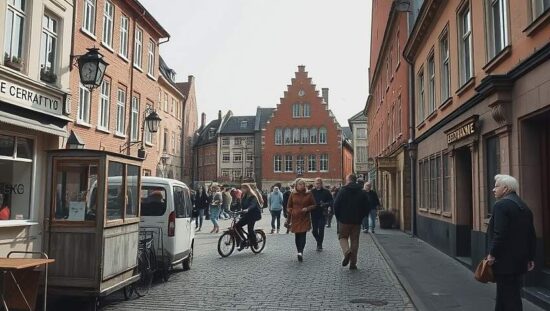Germany’s “Happiness Atlas” Reveals Uneven Progress
Germany’s overall sense of life satisfaction has crept forward minimally, according to the recently released “Happiness Atlas” compiled by Süddeutsche Klassenlotterien SKL.. The modest increase of just 0.03 points on a scale of 0 to 10 – settling at 7.09 – reveals a concerning lack of substantial improvement since pre-pandemic levels, raising questions about the efficacy of policy responses to recent economic and social challenges.
The data highlights a geographically uneven recovery. While eastern Germany witnessed a more noticeable rise in satisfaction – 0.12 points – the western region essentially remained static. This has narrowed the “happiness gap” between east and west to 0.24 points (7.15 in the west versus 6.91 in the east), a figure mirroring levels seen in the late 2010s, yet still indicative of persistent socio-economic disparities. The enduring gap underscores the ongoing need for targeted investment and societal redress in eastern regions, particularly in addressing lingering effects of reunification and structural economic shifts.
Regional variations within Germany themselves paint a complex picture. Hamburg continues to lead with the highest levels of contentment (7.33), followed closely by Bavaria and Rhineland-Palatinate (both 7.21). Bremen (6.89), Berlin (6.83) and Saarland (6.78) lag considerably behind and Mecklenburg-Vorpommern remains dramatically underserved at 6.06, a statistic demanding deeper investigation into the factors contributing to such low wellbeing.
The report also notes a generational divide. Younger generations appear to be experiencing a rebound in satisfaction post-pandemic, while older demographics are grappling with the corrosive effects of inflation and increased social isolation. This divergence suggests that current economic policies may be disproportionately impacting older citizens, exacerbating existing inequalities and demanding a re-evaluation of social safety nets and age-specific support systems.
A potentially troubling trend emerging from the Atlas is the intensification of emotional experiences. An increasing number of Germans report experiencing both positive and negative emotions with greater intensity. While the proportion of people citing frequent happiness has risen to 57%, concurrent increases in anger and anxiety offer a nuanced perspective on the current mood of the nation. The rise in negative affect, occurring alongside a generally high level of wellbeing, potentially signals an underlying societal fragility which warrants further scrutiny. Critics argue this underscores a need for greater attention to mental health support and a more proactive approach to addressing anxieties surrounding economic stability and geopolitical uncertainty.





